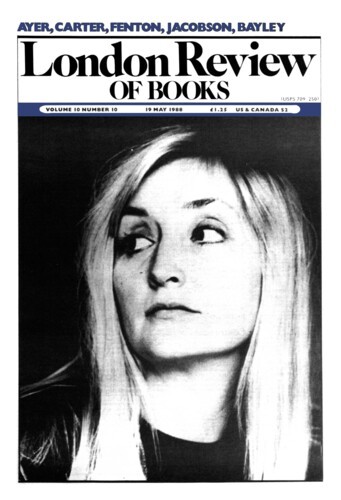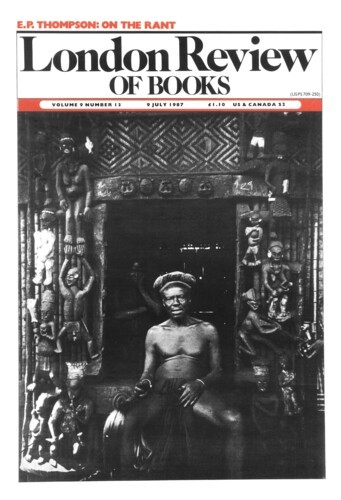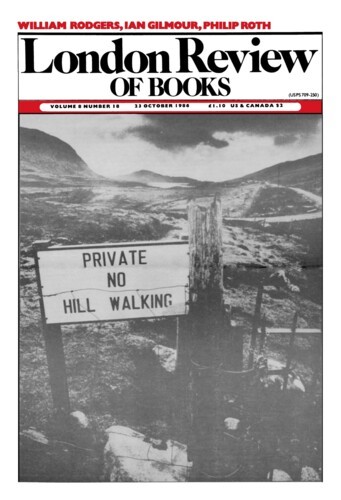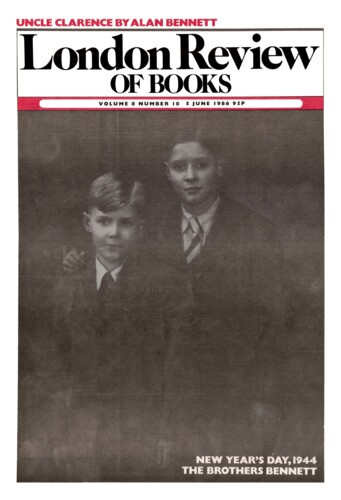Coy Mistress Uncovered
David Norbrook, 19 May 1988
When John Aubrey discovered that Milton had written some panegyrics of Cromwell and Fairfax, he eagerly sought them out for their ‘sublime’ quality: ‘were they made in commendation of the Devil, ’twere all one to me: ’tis the hypsos that I look after.’ Aubrey’s brief lives of the leaders of the Puritan revolution retain something of his youthful excitement at the sublimity, the magnanimity in defence of liberty, aspired to by the Devil’s party. What was at stake was a cultural revolution which seemed to a few enthusiasts to open up immense possibilities. Marvell’s prefatory poem to Paradise Lost registers the sense of some of his generation that there had been losses in the move from that sublimity to a Restoration ethos of polite consumerism, an age whose dominant trope is anti-climax.




